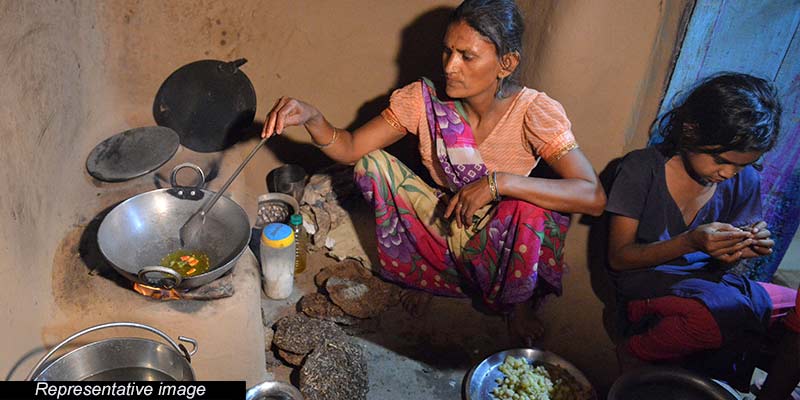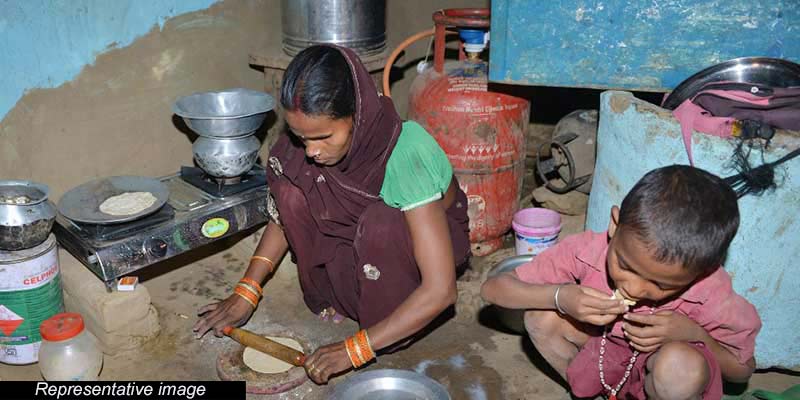- India
- Jan 20
- Arpan Tulsyan
Salary for homemakers: An idea laden with controversies
Last month, Makkal Needhi Maiam chief Kamal Haasan announced that his party will create a provision to pay homemakers, mainly women, for their unpaid housework. He argued this would create equal rights and remuneration. This suggestion was widely discussed in social media platforms.
How was the idea received across the globe in the past?
Although radical, the idea isn’t new. The demand for wages for housework was first raised in 1972, in a paper presented in the National Women’s Liberation Conference in Manchester by writer and activist Selma James. She also founded the International Wages for Housework Campaign (IWFHC), which continues to campaign for recognition and payment for all housework and care.
The underlying philosophy of wages for housework movement is situated in feminist interpretation of socialist ideologies. Like Left locates hierarchy in class and see industrial labour as the site of exploitation, IWFHC situates these in sex and housework. It contends that the while ‘productive’ labour of men are valued in a capitalist society, ‘reproductive’ labour of women within homes are invisiblised.
To address this exploitation, demand for remuneration for housework was strategically employed to serve three purposes: First, to make domestic and unpaid care work visible and enhance the dignity of women. Second, to enable fair redistribution of wealth and reduce women’s economic dependency, leading to greater autonomy. And third, to bring about a change in power relations and pave the way towards women’s refusal to do housework itself.
Between 1974 to 1976, three autonomous groups were formed with similar goals in UK, US and Canada: Black Women for Wages for Housework (now Women of Colour in the Global Women’s Strike), Wages Due Lesbians (now Queer Strike) and The English Collective of Prostitutes. A significant success of the movement came quickly in 1975 when a resolution by the United Nations asked member countries to measure and value unpaid work in national accounts.
To mark the International Women’s Day, on March 8, 2020, IWFHC called for a women’s strike across the globe. Although Global Women’s Strike (GWS) coordinators are present in India, the movement doesn’t have a popular grassroots support base. In fact, when the National Housewives Association applied to be recognised as a trade union in 2010, it barely made news. Their application was rejected by the deputy registrar of trade unions because housework was neither considered a trade nor an industry.
Two years later, the idea of wages for housework received great attention when Krishna Tirath, the then Minister for Women and Child Development, announced in 2012 that the government was considering a move for provision of salary for housework to wives, from husbands. The proposal however never materialised. The promise in the manifesto by Kamal Haasan reaffirms that women are increasingly being recognised as a ‘political constituency’.
Indian women spend 5 hours daily on domestic work
The patriarchal social structures, with women doing most of the unpaid domestic and care work is extremely evident in India as well. Time Use Surveys have consistently shown that women share a disproportionate burden of unpaid domestic and care work.
Data from National Sample Survey Organisation (NSSO) in 2019 shows that over 80 per cent women engage in unpaid domestic work, compared to about 25 per cent men. They also spend about five hours every day in such work, compared to only 1.5 hours by men.
According to a study by Gates Foundation, domestic and care work cost women seven years of their life and creates barriers for them in realising their educational and professional goals. The female labour market participation rate in India has consistently fallen, from 34 per cent in 2006 to 24.8 per cent in 2020.
What do the critics say?
While there is a consensus emerging on recognising housework as work and imputing its economic value in national accounts, the idea of salary for housework has been controversial. Feminists, who are critics of wages for housework movement, say that they are following a narrow agenda, which risks institutionalising the idea of men as providers. They argue that the goal of feminist movement should be to liberate women from disproportionate burden of housework and enhance female autonomy through meaningful participation in labour market rather than reinforce stereotypical social role.
Some argue that the movement is ‘reactionary’ based on a false theoretical premise. For instance, they question if children really must be only seen as ‘future capitalist workers’, for whose ‘production’ women must be compensated with ‘exchange value’. Thus, commodification, they say, cannot be an appropriate way to address complex social issues.
What do the supporters say?
The proponents have responded by arguing that wages for housework is a revolutionary idea, which when implemented by putting aside anxieties of commodification can result in compensating women for the subsidies they provide to state, patriarchy and capitalism.
Many unanswered questions
Wages for housework also presents substantial unanswered questions of operationalisation. First, should this provision include only housewives or be gender neutral, including either of the spouses who chooses to be a homemaker. Second, it should cover all women – including those who are working as they continue to shoulder household responsibilities as well. Third is the question of who should pay wages, the husband or the state. Fourth, and most challenging is how to measure and price the value of housework that must be paid as wage.
Adding yet another layer to the argument, MP Shashi Tharoor linked wages for housework to the concept of Universal Basic Income (UBI). The concept requires that the government must guarantee a universal basic income for all its citizens, regardless of their geography, employment status or resources. The idea is to provide a minimum living wage to offset circumstantial losses, reduce poverty and promote equality. However, UBI is neither exclusive for women or homemakers nor it is in lieu of unpaid housework. Thus it is crucial to keep both distinct.
Wages for housework movement politicises a crucial area of gender injustice and correctly points out the need for women to refuse disproportionate housework. However, its strategy to put a wage price on housework as an intermediate step, before it can be refused feels misplaced. Such measures, if adopted as policy could be expensive social experiments, with possible unintended consequences like an increase in domestic violence or dowry demands. It is thus important to avoid policy shortcuts for economic empowerment of women and focus on quality education, employment opportunities and safe and violence free public spaces.
(Arpan Tulsyan is a Senior Research Scholar at the Department of Social Work, Delhi University. The views expressed here are personal.)


